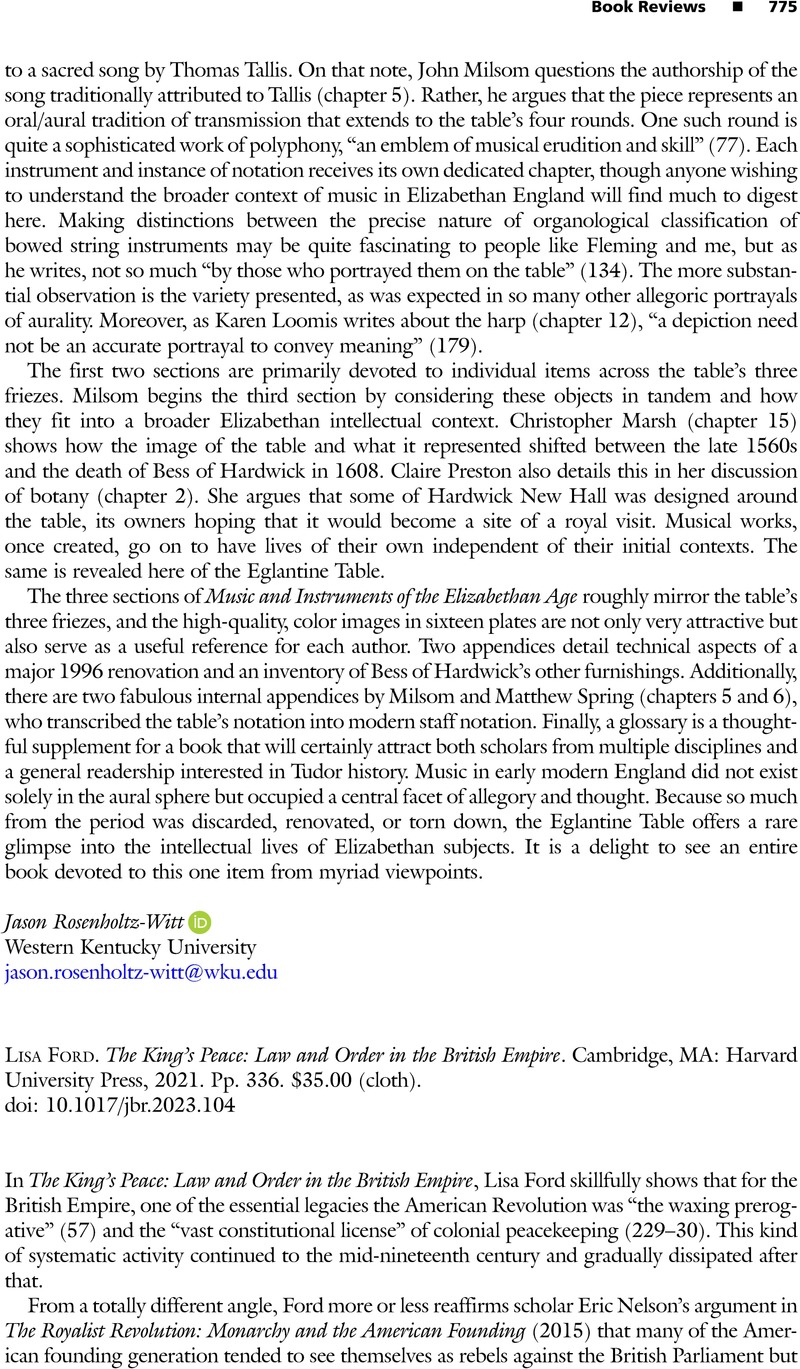No CrossRef data available.
Article contents
Lisa Ford. The King's Peace: Law and Order in the British Empire. Cambridge, MA: Harvard University Press, 2021. Pp. 336. $35.00 (cloth).
Review products
Lisa Ford. The King's Peace: Law and Order in the British Empire. Cambridge, MA: Harvard University Press, 2021. Pp. 336. $35.00 (cloth).
Published online by Cambridge University Press: 25 September 2023
Abstract
An abstract is not available for this content so a preview has been provided. Please use the Get access link above for information on how to access this content.

Information
- Type
- Book Review
- Information
- Copyright
- Copyright © The Author(s), 2023. Published by Cambridge University Press on behalf of The North American Conference on British Studies


